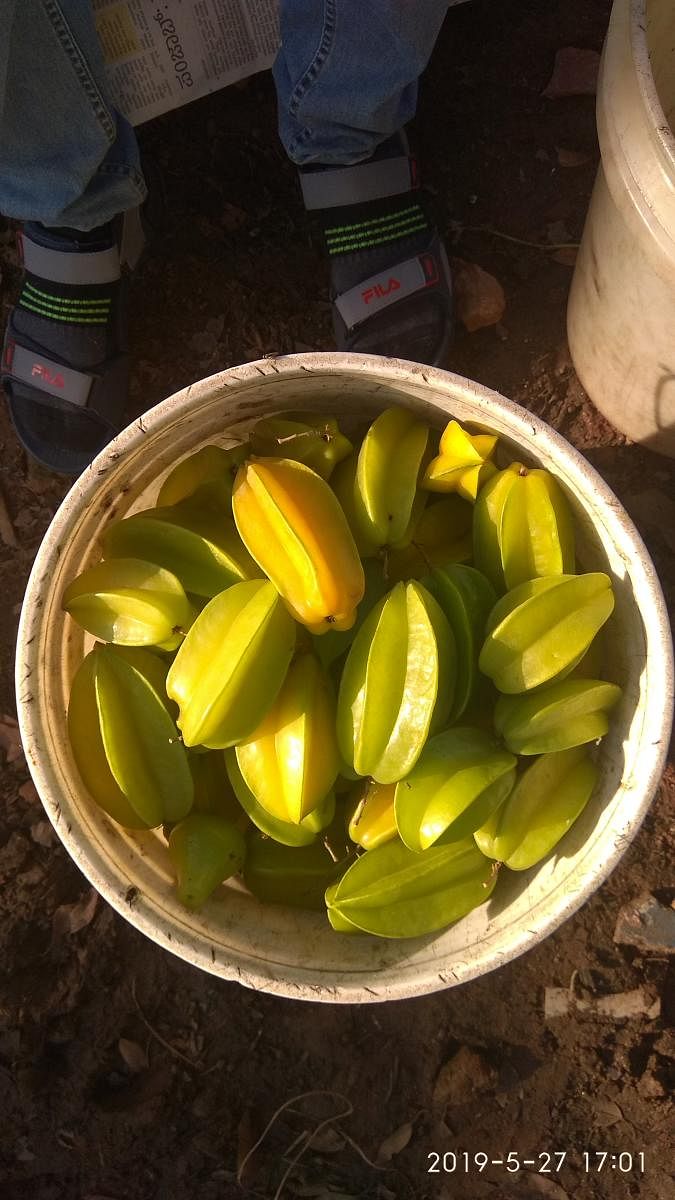New vistas of integrated farming



A farm dotted with tall trees catches one’s attention in Palahalli village near Srirangapatna in Mandya district. Srinivas and Anil, the father-son duo, is experimenting with a variety of crops in a place that is mostly covered with paddy and sugar cane. Traditional skills of the father and the adoption of modern technical know-how by the son together have become a recipe for their success.
It is very difficult to lead a decent life for a small farmer without the drudgery of clearing perennial farm loans just by growing the conventional paddy or sugar cane. This very thought a decade ago triggered them, to do something that brings them a sustained income and employment throughout the year.
Their cropping pattern is developed on the concept of optimal use of sunlight to enhance productivity.
“Farmers should have a regular income,” says Anil. Instead of selling coconuts, they make copra and sell it directly to the market. “Each coconut on an average gives over 140-gram copra, the shell and the husk, the net income from selling all these is much higher than what we get from selling the unprocessed nut,” adds Srinivas.
Non-traditional crops
They grow scented geranium, an aromatic perennial herb, in half an acre area and its scented leaves are harvested every day and sold at Mysuru market. Since not many farmers grow this crop, there is a regular and consistent demand. On an average, they get about Rs 2,000 every day from this crop alone. However, 50% of the income goes towards its harvesting.
Srinivas and Anil have proved that coffee can be grown successfully in the sugar cane belt. They have grown it as a mixed crop in their coconut garden. After consulting experts, they chose a variety whose performance was relatively better at a lower elevation with high temperature.
Because of multiple crops at different levels, the soil is covered completely. They apply organic manure twice a year to perennial crops besides liquid manure from the biodigester. Crop residues such as fallen coconut fronds, coffee and sapota leaves form the mulch and decay slowly releasing the nutrients required for the crops in a sustained manner.
As the visiting farmers generally ask for planting material, they have started a small nursery unit. Chinnaswamy Vaddagere, a farmer from Gundlupet, said, “I am surprised to see coffee in the heartland of paddy and sugar cane. This model is inspiring to fellow farmers of the state.”
During his early days of farming, Srinivas grew only a few traditional crops such as paddy and sugar cane and incurred huge losses. “Diverse crops and agro-enterprises greatly reduce the market risks besides ensuring sustainability,” he says. Coconut, coffee, sapota, avocado, mangoes, jackfruit, carambola, water apple, scented geranium, black pepper are some of the crops grown here.
Srinivas is convinced about sustainable farming practices and doesn’t allow his son to use chemical inputs. Hence, Anil has bought three-acre land adjacent to their farm on lease and started cultivating commercial crops like banana and ginger using integrated farming methods.
Those who are interested can contact Srinivas on 918095777255.
Harish B S